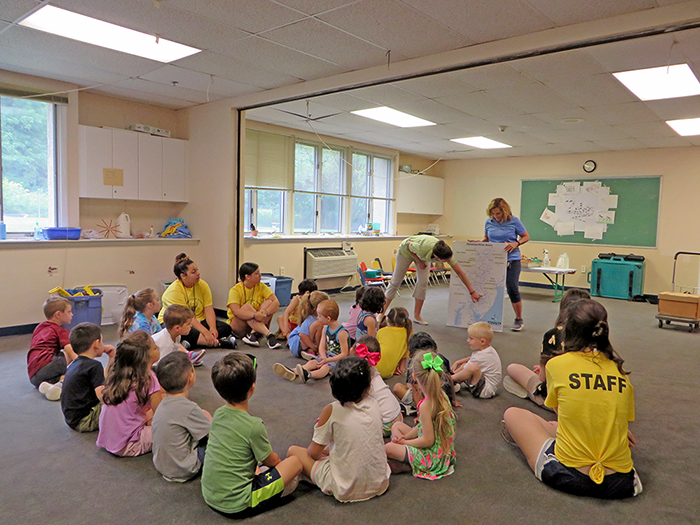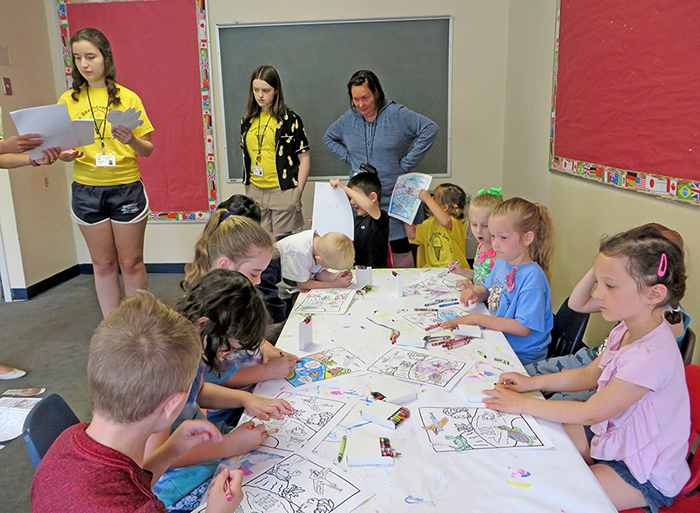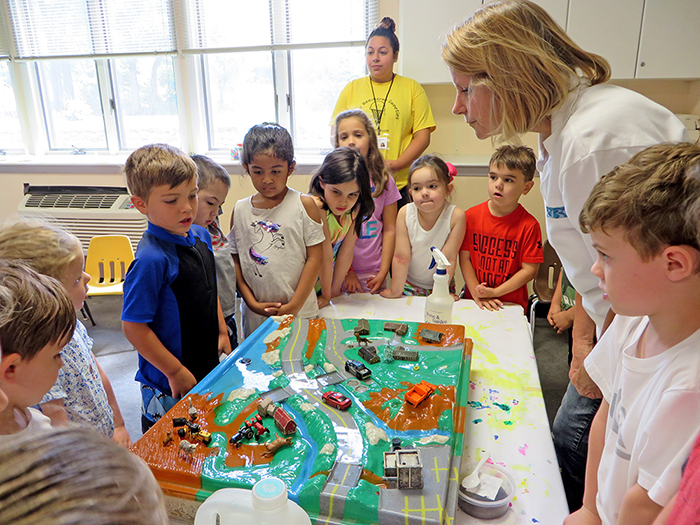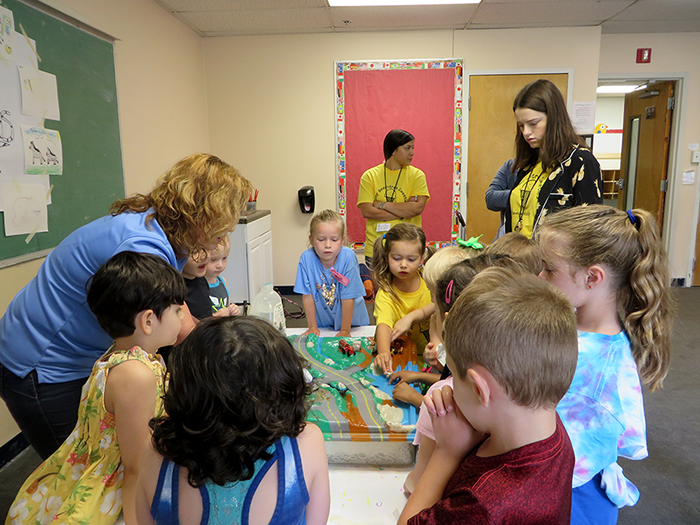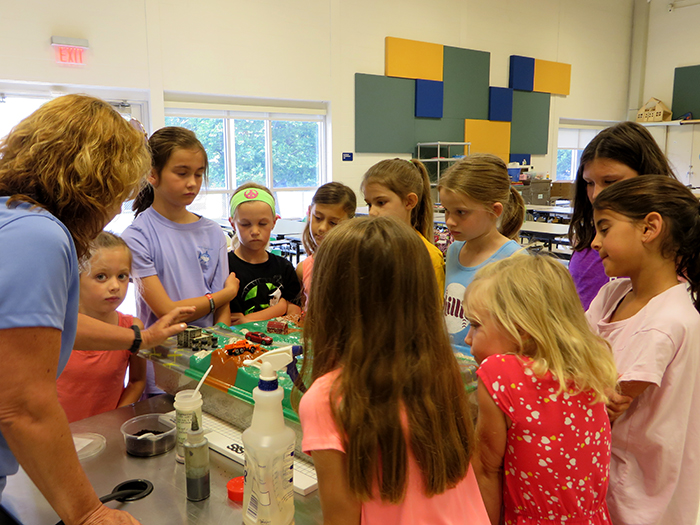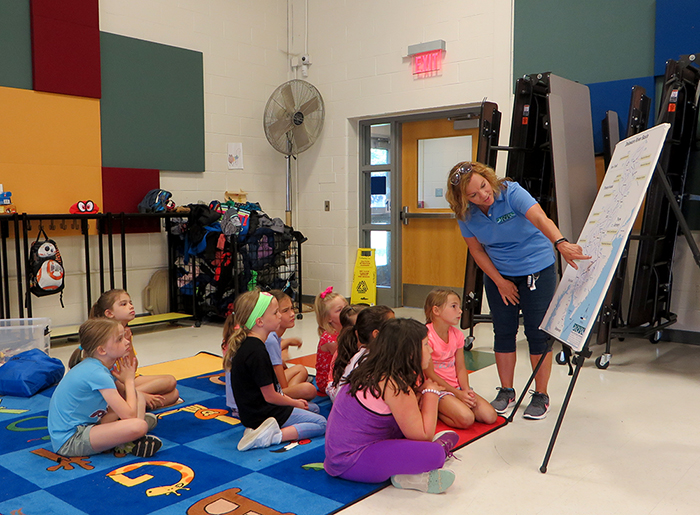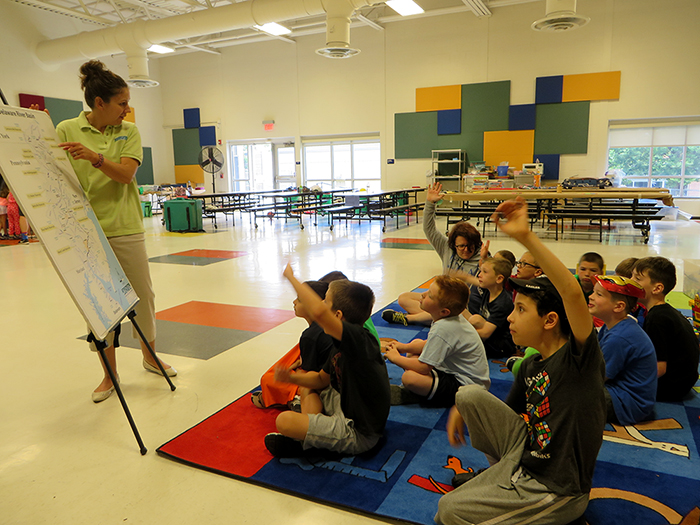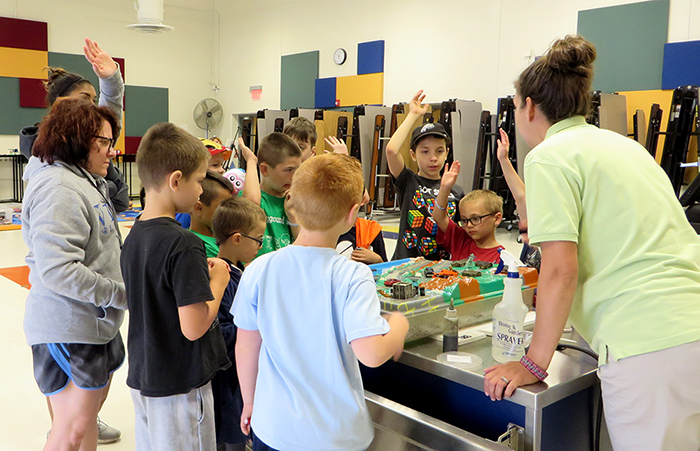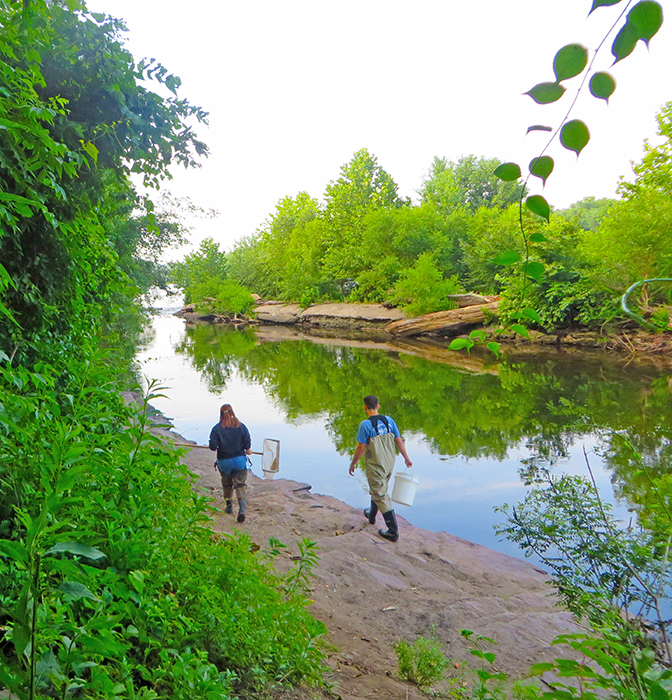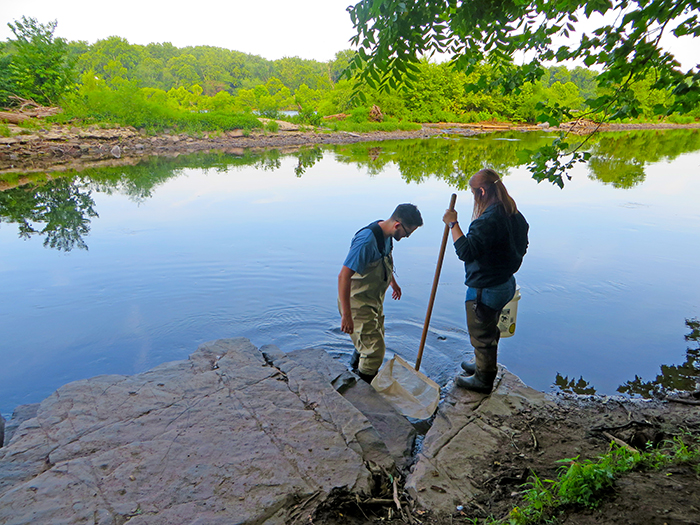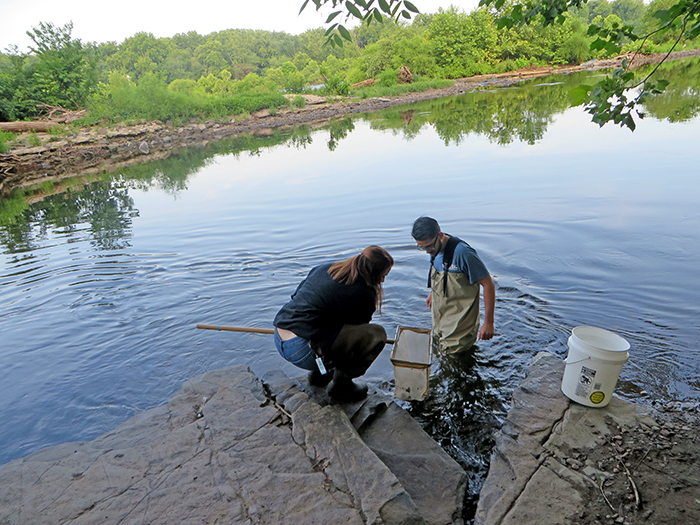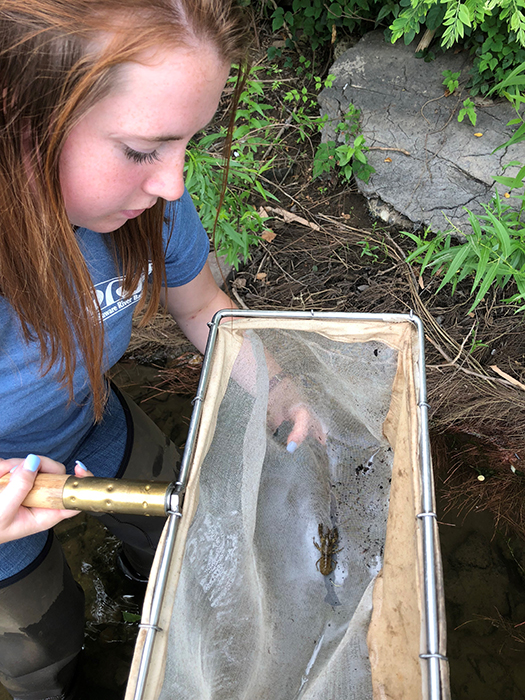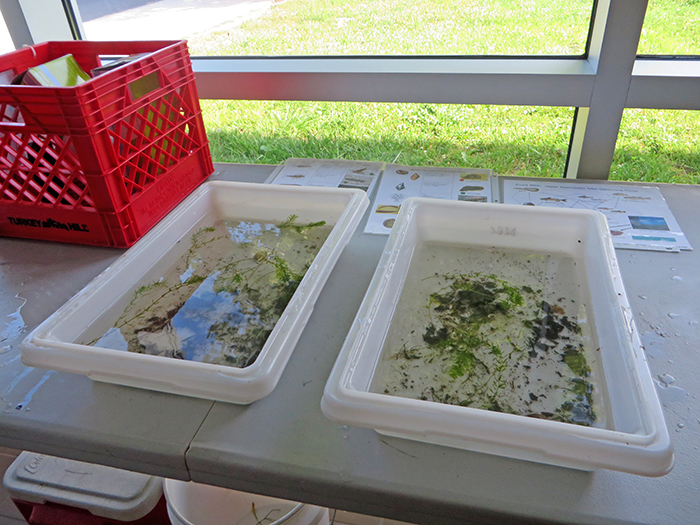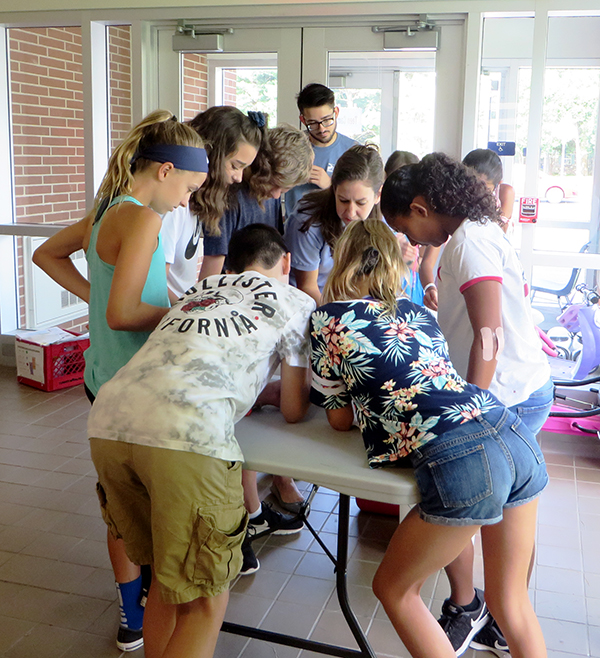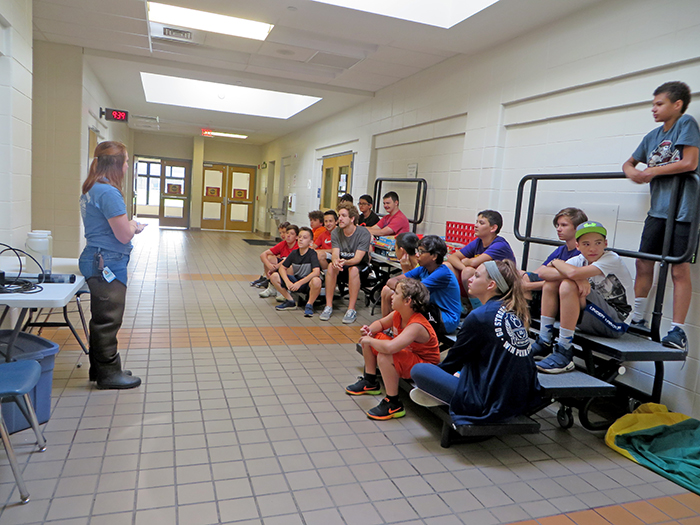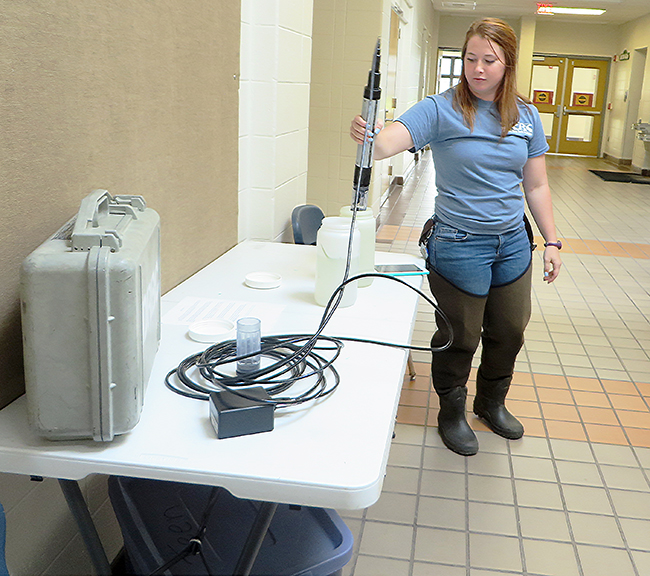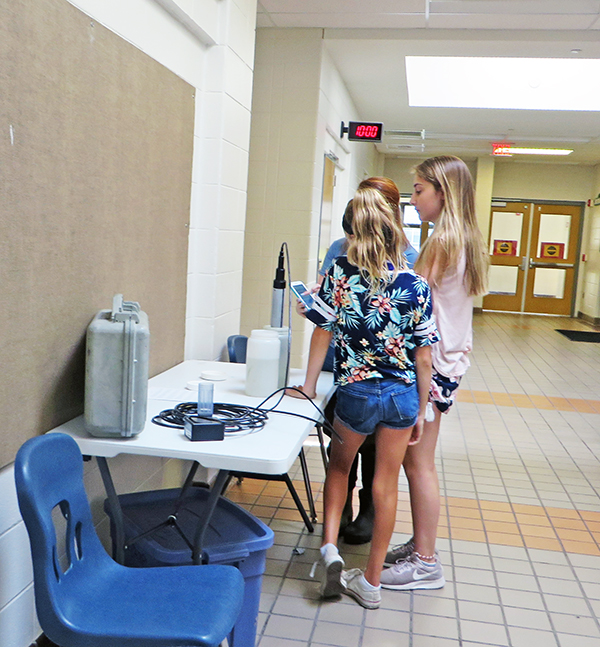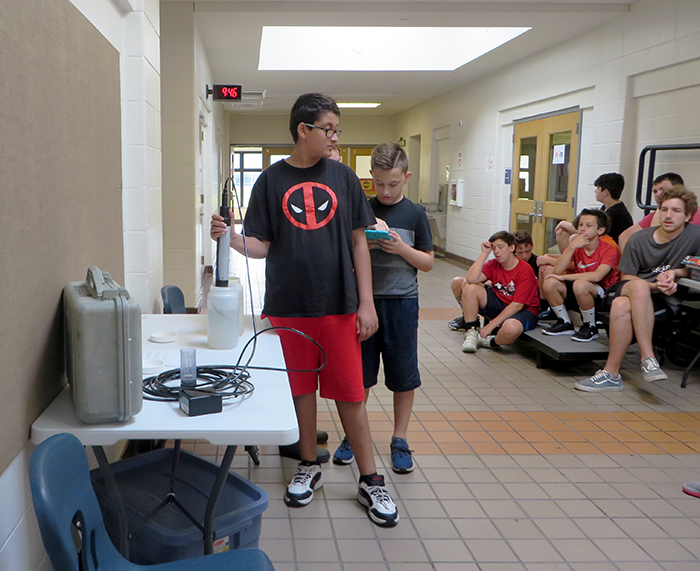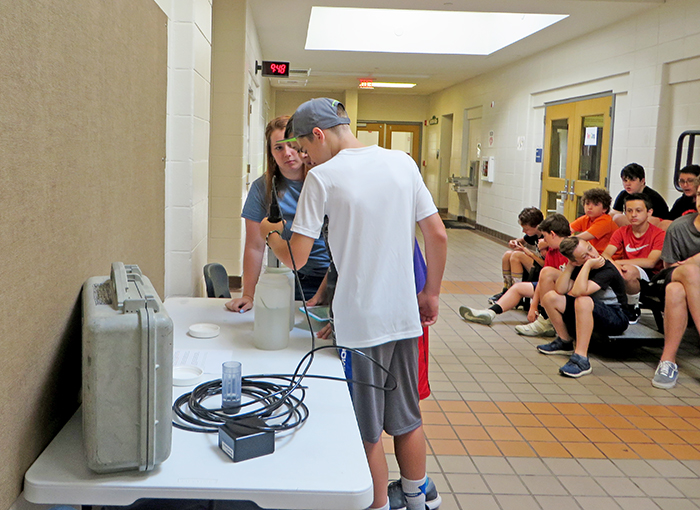Delaware • New Jersey • Pennsylvania
New York • United States of America
Outreach is an important strategic goal of DRBC. Getting out of the office and connecting with the public helps share information about the commission and the Delaware River, as well as encourage stewardship of our shared water resources.
Recently, staff visited three different summer camps hosted by Newtown Township's (Pa.) Parks and Recreation Department to talk to the kids about pollution prevention and water quality in the Delaware River Basin. Staff had a great time visiting these camps and talking with kids not only about what we do to manage and protect the water resources of the Delaware River, but also about how they too play a role in keeping the basin's waterways clean.
Using a map of the Delaware River Basin and the commission's Enviroscape watershed model, staff helped the kids attending Camp Beechtree (ages 4-6) and Playground Camp (grades 1-5) answer the questions Do we live in a watershed? and How can we help keep our watershed clean?.
While the concept of a watershed was a bit advanced for the Camp Beechtree kids, they learned about where does the water go when it rains and the importance of not littering through a coloring activity coupled with the Enviroscape demonstration.
The Enviroscape model is a great tool to show different sources of pollution found in runoff especially after heavy rains. The model is always a hit with kids, especially younger children, as it demonstrates in a visually engaging way the connection between land and water and gets them thinking about how they too can help keep the river clean.
Staff also visited the township's Teen X-Treme Camp (grades 6-9) to provide an interactive lesson on the different biological and chemical parameters we monitor to manage and protect the Delaware River's water quality.
For the biology lesson, staff brought in a sample of macroinvertebrates (aquatic bugs) they collected from the Delaware River earlier that day. Using identification keys and with the help of DRBC staff, the campers identified the bugs found in the water samples. The hands-on lesson explained that the type and amount of these organisms found in a waterbody can help indicate its water quality. Some bugs, for example scuds, water pennies, and even crayfish, are sensitive to pollution; others, such as leeches or aquatic worms, are more pollution tolerant. Finding more pollution sensitive species in the water samples, which we did on this day, is a positive indicator of how clean the river is.
For the chemistry lesson, staff brought in a water sample collected earlier that day from the Delaware River. Using a probe and an iPad, campers were able to read real-time data collected from the sample. Parameters monitored by DRBC include temperature, pH, conductivity, and dissolved oxygen levels; staff explained to the campers why these parameters are important and what they can tell us about the health of the river.
Copyright © Delaware River Basin Commission,
P.O. Box 7360, West Trenton, NJ 08628-0360
Phone (609)883-9500; Fax (609)883-9522
Thanks to NJ for hosting the DRBC website
